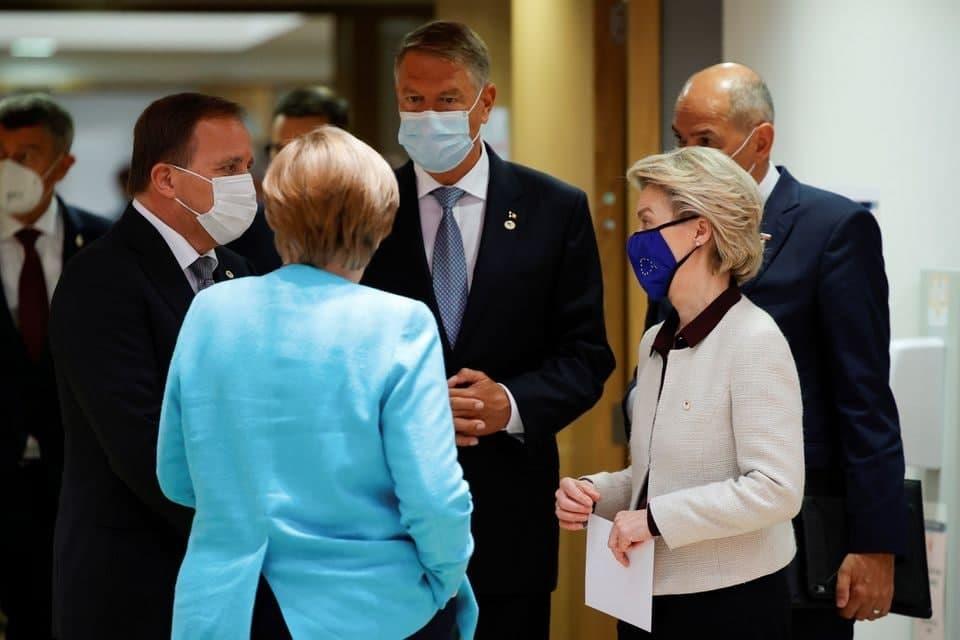BRUSSELS, June 25 (Reuters) - European Union leaders failed to agree on a proposal by France and Germany to hold a summit soon with Russian President Vladimir Putin after Poland and Baltic countries saidit would send the wrong message as East-West ties deteriorate.
After U.S. President Joe Biden met Russian President Vladimir Putin in Geneva on June 16, French President Emmanuel Macron said the first EU summit with Putin since January 2014 would be "a dialogue to defend our interests". He insisted the EU could not only be reactive in its diplomacy with Russia.
But after late night talks at their meeting in Brussels, the 27 EU leaders failed to reach an agreement, German Chancellor Angela Merkel said early on Friday.
"It was a very comprehensive discussion, and not an easy one," she told reporters. "There was no agreement today on an immediate leaders' meeting," she said.
EU summits with Russia ended after Moscow annexed Ukraine's Crimea peninsula in March 2014 and the West imposed sanctions.
While Austria's Chancellor Sebastian Kurz said he supported the Franco-German proposal, many other leaders were opposed.
"It was a common position of many leaders" not to change the stance on Russia, Lithuanian President Gitanas Nauseda said after the meeting broke up. He earlier said the idea was like "trying to engage the bear to keep a pot of honey safe".
Latvia's Prime Minister Krisjanis Karins said the EU risked rewarding Russia with a summit even though diplomacy has failed to end the conflict in eastern Ukraine with Russian-backed separatists.
Instead, EU leaders fell back to a familiar position of warning of more sanctions on Moscow if it continued what the EU says is a Russian policy of disinformation, cyber and covert attacks and interference to try to divide the bloc.
Russia denies any wrongdoing.
In a summit statement, leaders called on the European Commission and the EU's top diplomat Josep Borrell "to present options for additional restrictive measures, including economic sanctions" against Russia.
The EU has sanctions on the Russian energy, financial and arms sectors and individual sanctions on Russians accused of human rights abuses and for using banned chemical weapons.
Diplomats say further sanctions could target Russian money laundering or powerful oligarchs suspected of serious corruption abroad, as non-EU member Britain did for the first time in April.
